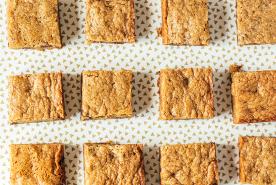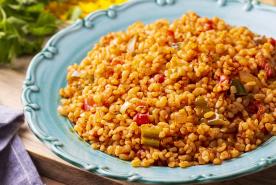Understand how cholesterol impacts kidney health and increases heart disease risk in CKD. Learn how to manage cholesterol and protect your kidneys.
Table of Contents
- What is cholesterol?
- Why is too much cholesterol in the blood bad?
- What tests are used to measure cholesterol?
- What else increases the chance for heart disease?
- What can I do to decrease my chance for developing heart disease?
- What about medicine to help lower my chance for developing heart disease?
- Who can I talk to about specific questions I have to reduce my chance for developing heart disease?
- Tips to Reduce Fat and Cholesterol in Your Diet
Why is too much cholesterol in the blood bad?
Too much cholesterol can build up in your blood vessels. This build-up can narrow vessels and lead to a blockage, preventing blood from getting to certain parts of your body. When this happens in your heart vessels, it is called coronary heart disease and can cause a heart attack. In people with chronic kidney disease (CKD), heart disease is very common, and is the number one cause of death in this group. It is suggested that people with CKD have their cholesterol tested every year. Your doctor may want to do them more often if something has changed with your health.
What tests are used to measure cholesterol?
Low density lipoprotein (LDL) cholesterol, also known as bad cholesterol, is the primary cholesterol test used to screen for heart disease. Other lab tests usually include:
- High density lipoprotein (HDL) cholesterol, also known as good cholesterol
- Triglycerides
- Total cholesterol
Since these tests results are affected by food, it is recommended that you do not eat 9 to 12 hours before the lab tests are done.
Cholesterol lab values are different for adults and children. The lab ranges shown below are for adults and should not be used for children. People with good LDL cholesterol, high HDL cholesterol, and normal triglycerides are less likely to have heart disease.
LDL Cholesterol | HDL Cholesterol | Total Cholesterol | Triglycerides | |
| Optimal | <100 mg/dL | ≥60mg/dL F ≥55mg/dL M | Desirable: <200mg dl | Normal <150mg dl |
| Near Optimal | 100-129mg/dL | |||
| Borderline High | 130-159mg/dL | 200-239mg/dL | 150-199mg/dL | |
| High | 160-189mg/dL | ≥240mg/dL | 200-499mg/dL | |
| Very High | ≥190mg/dL | ≥500mg/dL |
What else increases the chance for heart disease?
Aside from high LDL cholesterol levels, the risk for heart disease increases with the following risk factors:
- cigarette smoking
- obesity
- high blood glucose
- low HDL cholesterol
- age (men > 45 years old; women > 55 years old)
- high blood pressure or on medicine to control high blood pressure
- diabetes
- family history of early heart disease
- other diseases that affect blood vessels
People with CKD may have some added risk factors that lead to heart disease:
- high calcium intake from diet or medicine
- high blood phosphorus levels
- high parathyroid hormone levels
- high homocysteine levels
- whole body inflammation
People who are physically inactive or who eat foods that are high in saturated fat and cholesterol also have a greater chance for developing heart disease.
What can I do to decrease my chance for developing heart disease?
Lifestyle Changes:
- Increase physical activity to 30 minutes every day at a moderate level. This will help:
- raise HDL cholesterol
- lower LDL cholesterol in some people
- lower blood pressure
- improve blood glucose
- improve heart function
- Stay at a healthy weight
- Talk to your doctor and dietitian
- Do not smoke
Diet changes:
- Choose foods that are low in saturated fat and cholesterol. See Tips to Reduce Fat and Cholesterol in Your Diet.
- Decrease use of trans fatty acids since they can raise LDL cholesterol.
- Use plant stanols and sterols found in regular or "light" specially formulated margarine-like spreads. Increase soluble fiber. Fruits, vegetables, and grains are good sources of fiber.
- Talk with your dietitian for help with safely and gradually increasing fiber in your diet.
Treatment of other risk factors:
- Control high blood pressure and diabetes.
- Treatment for these diseases can include medicine, diet changes, and increased physical activity.
- Your healthcare professional can help you with lifestyle changes to best treat these diseases.
Who can I talk to about specific questions I have to reduce my chance for developing heart disease?
- Your doctor can order medicines and tests that can lower your chance for developing heart disease.
- Your registered dietitian nutritionist (RDN) can help you make healthy changes to your diet.
- A pharmacist can answer questions you might have about any medicine the doctor has prescribed for you.
- Other healthcare team members, such as a nurse or psychologist can also help answer questions about making lifestyle changes and other ways to prevent heart disease.
Tips to Reduce Fat and Cholesterol in Your Diet
- Choose lean meats, poultry, and fish. The loin and round cuts of meat tend to be leaner than rib cuts and organ meats.
- Trim all visible fat from meat and remove skin from poultry.
- Steam, broil, roast, or bake meat, poultry, and fish. Place the food on a rack to allow the fat to drain away from the food. Do not fry foods.
- Choose fresh fruits and vegetables. Steam, boil, bake, or microwave vegetables. Do not fry foods.
- Use nonstick pans or vegetable sprays for sautéing.
- Use herbs and spices to season foods instead of sauces, butter, or margarine.
- Try wine, lemon juice, or flavored vinegar to give flavor with limited fat and calories.
- Use jelly, jam, honey, or syrup instead of butter or margarine on toast, waffles, pancakes, or muffins.
- Use fat free or reduced fat versions of high-fat foods. For example, use fat-free sour cream in place of regular sour cream or use 1% or skim milk in allowed amounts.
- Limit hydrogenated and partially hydrogenated fats. These can be found in some margarines, peanut butters, packaged baked goods and snacks, and fried foods. Try baked crackers instead of fried crackers. Buy grilled or baked items when eating out.
- Use two grams of plant stanols or sterols per day. These are sold as specially formulated margarine-like spreads. Your dietitian can help you find these products.
- Limit products made with coconut, palm kernel, palm oil, lard, shortening, bacon fat and cocoa butter.
- Use canola or olive oils instead of shortening, butter, or other oils when cooking. These monounsaturated fats will not lower your HDL level.
- Try sherbet or ice milk instead of ice cream.
- Read food labels. Do not be misled by foods that are “cholesterol free” but contain large amounts of saturated fat that your body will turn into cholesterol.
For more information on cholesterol and heart disease, check out these sites
National Heart Lung and Blood Institute American Heart Association"
If you would like more information, please contact us.
Acknowledgment: Reviewed by the Council on Renal Nutrition (03/2019)
© 2019 National Kidney Foundation. All rights reserved. This material does not constitute medical advice. It is intended for informational purposes only. Please consult a physician for specific treatment recommendations.

















